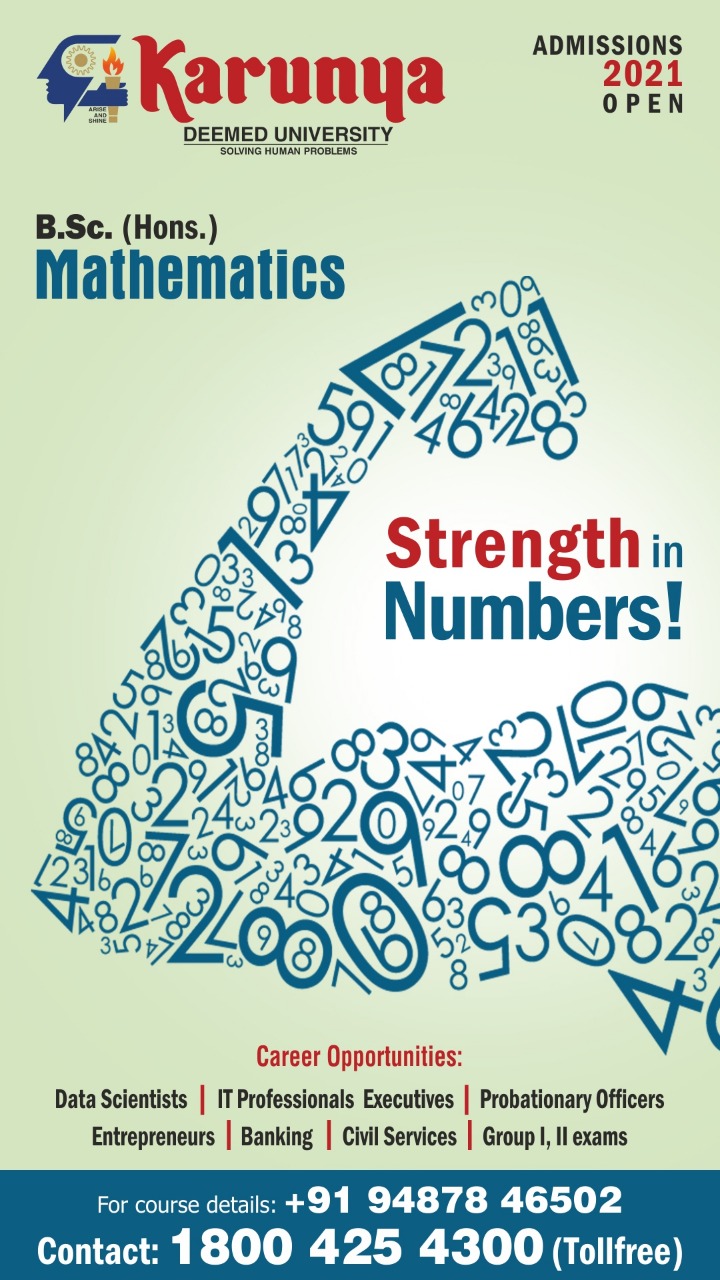
Overview

Department of Mathematics
Overview
The Department of Mathematics has carved a niche for its own by imparting top class knowledge to the students against a sophisticated learning environment. The knowledge quotient of the department is formed by 23 faculty members who are competent researchers and quality teachers who tirelessly help the students learn the basics as well as the cutting edge areas in the field of Mathematics. The students are trained and equipped with a strong foundation in Mathematics there by enabling them to become top notch scholars and scientists of the future society. The Department of Mathematics functions to the needs of the Engineering students at both Under Graduate and Post Graduate level. The subject Engineering Mathematics covers all the vital concepts of Mathematics which form the basis for all core engineering subjects. Transforms, Discrete Mathematics, Probability and Statistics, Stochastic Processes, Graph Theory etc. are some of the thrust areas which are taught to the Under Graduate Engineering Students. The Department also offers M.Sc., M.Phil. and Ph.D. programmes in core Mathematics. Graduates who wish to pursue their higher studies are offered advanced courses in Mathematics to empower them in their lofty quest of higher education. As torch bearers in this lofty quest the department offers courses in Tensor Analysis and Special Theory of Relativity, Functional Analysis and Topology.
Goals
- The primary goal of the Department of Mathematics is to empower all students think logically and critically.
- The core curriculum facilitates the development of higher level mathematical skills and computing expertise in the students.
- The departmental programmes and activities provide opportunities for academic and technical excellence.
Objectives
- To comprehend Mathematics as an art as well as a powerful foundational tool of science with limitless applications.
- To understand the theoretical concepts and axiomatic substructures of Mathematics and to build up an ability to construct proofs at the appropriate level.
- To develop Mathematical Modelling of complex phenomena, problem solving and decision making.

